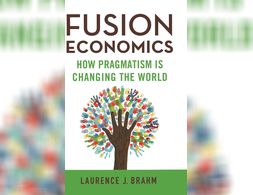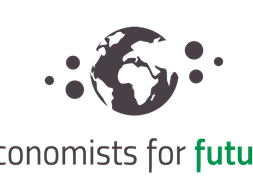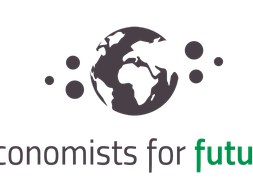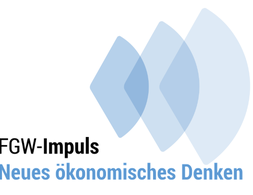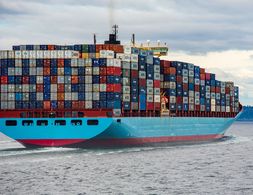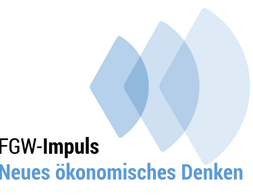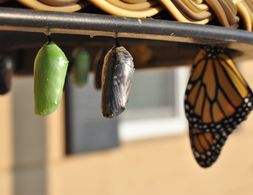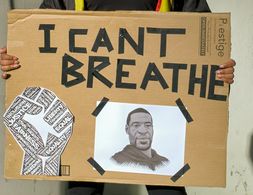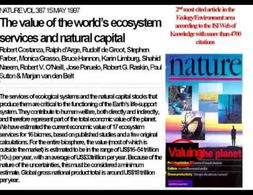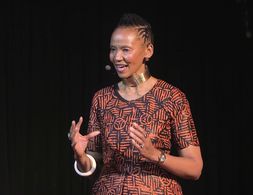382 Ergebnisse
This lecture is based on the “Introducing the Economy” chapter from the Economy Studies book, which introduces the first building block in their framework for transforming the economics education. The aim is to give students a feel and
understanding of the economy as part of a bigger whole. Thus, it is aimed to introduce to students before getting into the economics curriculum with theory and models.
The Wealth of Ideas traces the history of economic thought, from its prehistory (the Bible, Classical antiquity) to the present day.
The current international financial system has created a huge gap between the wealthy and the rest. Grounded and straightforward in his approach, Brahm calls for a turn away from economic systems dangerously steeped in ideology and stymied by politics, outlining a new global consensus based on pragmatism, common sense, and grass-roots realities.
Adam Smith's The Wealth of Nations provided the first, most influential and lasting explanation of the workings of modern economics. But with his focus on "the market" as the best mechanism for producing and distributing the necessities of life, Smith's concepts only told part of the story, leading to flawed economic models that devalue activities that fall outside of the market's parameters of buying and selling.
This volume explores the relationship between law and economics principles and the promotion of social justice. By social justice, we mean a vision of society that embraces more than traditional economic efficiency. Such a vision might include, for example, a reduction of subordination and discrimination based on race, religion, gender, sexual orientation, age, disability or class.
In the graveyard of economic ideology, dead ideas still stalk the land.
The recent financial crisis laid bare many of the assumptions behind market liberalism—the theory that market-based solutions are always best, regardless of the problem. For decades, their advocates dominated mainstream economics, and their influence created a system where an unthinking faith in markets led many to view speculative investments as fundamentally safe.
Smith contends that there is no possible solution to our global ecological crisis within the framework of any conceivable capitalism. The only alternative to market-driven planetary collapse is to transition to a largely planned, mostly publicly-owned economy based on production for need, on democratic governance and rough socio-economic equality, and on contraction and convergence between the global North and South.
Macroeconomics is fundamental to our understanding of how the world functions today. But too often our understanding is based on orthodox, dogmatic analysis.
Planetary Mine rethinks the politics and territoriality of resource extraction, especially as the mining industry becomes reorganized in the form of logistical networks, and East Asian economies emerge as the new pivot of the capitalist world-system.
Die Eleganz der modernen Klimaökonomik scheint für viele attraktiv. Wie sie nichtsdestotrotz die Realität verklärt, wichtige Machtfragen ignoriert und so unzulänglich für effektive Klimapolitik ist, zeigt dieser Beitrag von Philipp Censkowsky und Jorim Gerrard.
Um der Klimakrise zu begegnen, müssen wir unsere Art zu wirtschaften radikal verändern. Ein großes Hindernis auf diesem Weg könnte die vorherrschende ökonomische Theorie sein. Denn der neoklassischen Wirtschaftswissenschaft ist es methodisch unmöglich, alternative Wirtschaftsformen abzubilden. Außerdem führt sie zu Politikempfehlungen, die systematisch die Möglichkeit einer Postwachstumswirtschaft ausblenden.
In der Studie werden Lehrbücher zur Einführung in die Mikro- und Makroökonomie an deutschen Hochschulen untersucht.
As the world's energy system faces a period of unprecedented change, a global struggle over who controls the sector--and for what purposes--is intensifying. The question of "green capitalism" is now unavoidable, for capitalist planners and anti-capitalist struggles alike.
The deceleration of world trade since 2011 has been widely discussed How much is due to a reversal of international production fragmentation And how much is due to decreasing demand for trade intensive goods The authors present a consistent framework that quantifies their relative importance A central concept in the …
The investigative research conducted by the German weekly newspaper "Die Zeit" and the British Daily Newspaper "The Guardian" includes a research-based critique of carbon trading.
Durch das Internet und die Digitalisierung haben sich Angebot, Beschaffung und Einsatzmöglichkeiten von schulischen Lehr- und Lernmitteln erheblich gewandelt. Dieser Wandel betrifft sowohl formelle als auch inhaltliche Aspekte. Er ist auch und gerade im Bereich der sozialwissenschaftlichen Bildung vordringlich, da diese seit jeher ein ideologisch umkämpftes Feld darstellt.
The notion that the demand and supply side are independent is a key feature of textbook undergraduate economics and of modern macroeconomic models. Economic output is thought to be constrained by the productive capabilities of the economy - the ‘supply-side' - through technology, demographics and capital investment. In the short run a boost in demand may increase GDP and employment due to frictions such as sticky wages, but over the long-term successive rises in demand without corresponding improvements on the supply side can only create inflation as the economy reaches capacity. In this post I will explore the alternative idea of demand-led growth, where an increase in demand can translate into long-run supply side gains. This theory is most commonly associated with post-Keynesian economics, though it has been increasingly recognised in the mainstream literature.
The book is a collection of 51 texts by different scholars and activists, who each adds a dimension/perspective to the topics of degrowth and societal transformation. A societal transformation towards a degrowth society is dependent on a lot of ideas coming together and creating change from various starting points within a society. Therefore, the authors are quite diverse and their contributions vary from being philosophical, natural science based, economic, sociological and so forth. Some are specfiically focused on a concept and others are a more broad critique of e.g., capitalism or growth.
In this course you'll learn about the tools used by scientists to understand complex systems. The topics you'll learn about include dynamics, chaos, fractals, information theory, self-organization, agent-based modeling, and networks.
In der Lehrveranstaltung „Plurale Feministischen Ökonomie“ erhalten die Studierenden einen Einblick in die unterschiedlichen Debatten innerhalb der Feministischen Ökonomie, die von der Subsistenztheorie bis hin zur Queer Economics reichen, und lernen die wissenschaftstheoretischen, normativen und methodischen Hintergründe kennen.
Capitalism is dissolving boundaries - not only in the sense of ever-expanding global trade flows, but also in the concrete everyday working lives of individuals. What implications does this have for our understanding of freedom, work and borders?
Lean Logic is the late David Fleming’s masterpiece, the product of more than thirty years’ work and a testament to the creative brilliance of one of Britain’s most important intellectuals. A dictionary unlike any other, it leads readers through Fleming’s stimulating exploration of fields as diverse as culture, history, science, art, logic, ethics, myth, economics, and anthropology, being made up of four hundred and four engaging essay-entries covering topics such as Boredom, Community, Debt, Growth, Harmless Lunatics, Land, Lean Thinking, Nanotechnology, Play, Religion, Spirit, Trust, and Utopia. The threads running through every entry are Fleming’s deft and original analysis of how our present market-based economy is destroying the very foundations—ecological, economic, and cultural— on which it depends, and his core focus: a compelling, grounded vision for a cohesive society that might weather the consequences
Potts (economics, University of Queensland) proposes evolutionary microeconomics as a synthesis of the collective schools of heterodox economic thought with complex systems theory and graph theory.
Eine erfolgreiche Wirtschaftstransformation hängt von einer Veränderung der ökonomischen Praktiken der Akteure ab. Die „Spirale transformativen Lernens“ identifiziert, welche Fähigkeiten dafür entscheidend sind.
In ihrem Text "Warum die Energiepreise hoch bleiben" diskutiert Verena Kreilinger die strukturellen Ursachen für steigende Energiepreis.
Ihre Erklärungs- und Deutungslogik hat die Ökonomik in der zweiten Hälfte des 20. Jahrhunderts selbstbewusst auf nahezu alle gesellschaftlichen Phänomene ausgedehnt. Auch auf Diskriminierung und Rassismus. Leider dreht sich auch bei diesem Thema die Mainstream-Ökonomik um sich selbst, argumentieren Steffen Haag und Elena Goschin.
Das Modell des homo oeconomicus erklärt in der Mainstream-Ökonomik das Verhalten des Individuums nach der Logik der Situation. Auch wenn Vertreter*innen des Konzepts betonen, dass es sich um eine wissenschaftliche Abstraktion handelt, fungiert der homo oeconomicus auf der gesellschaftlichen Makroebene jedoch als repräsentativer Akteur und stellt somit eine Reduktion des Menschen dar. Ein Essay von Elena Goschin.
Surviving the Future is a story drawn from the fertile ground of the late David Fleming's extraordinary 'Lean Logic: A Dictionary for the Future and How to Survive It'. That hardback consists of four hundred and four interlinked dictionary entries, inviting readers to choose their own path through its radical vision. Recognizing that Lean Logic's sheer size and unusual structure can be daunting, Fleming's long-time collaborator Shaun Chamberlin has selected and edited one of these potential narratives to create Surviving the Future. The content, rare insights, and uniquely enjoyable writing style remain Fleming's, but are presented here at a more accessible paperback-length and in conventional read-it-front-to-back format
Maria Nikolaidi on how Minsky’s theory has been modelled over past decades and how one can use these models in order to analyse contemporary issues such as financial fragility and financial instability caused by climate change.
Anwar Shaikh explores alternative economic explanations, emphasizing 'real competition' theory and the role of imperfections in economic patterns.
Robert Costanza briefly present various methods of environmental valuation, and talks about the changes in the global value of ecosystem services. He then introduces the major ecosystem services, and how different methods of valuation affect the preferred policies to address environmental issues.
This talk is an exploration of a feminist centred world, where women's labour, women's energy, women's contributions to the economy are not a side event but the main event.
Wir nutzen Cookies. Klicke auf "Akzeptieren" um uns dabei zu helfen, Exploring Economics immer besser zu machen!



